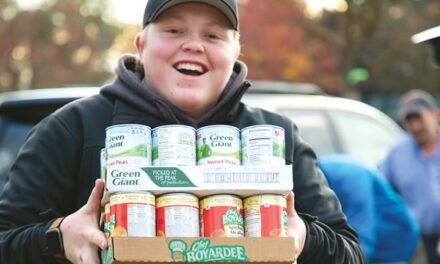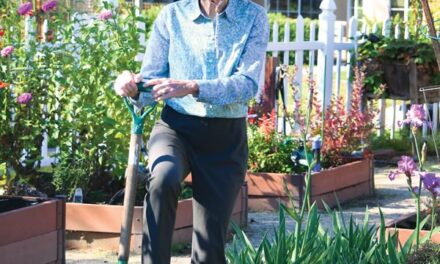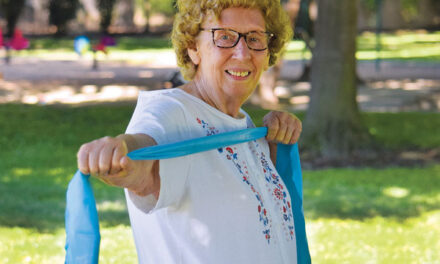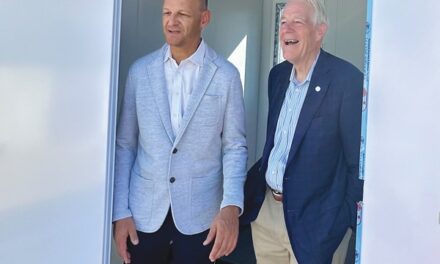It’s common to see untreated mentally ill people wandering in neighborhoods where homeless congregate and camp. With a crisis on display, it’s hard to imagine the lifetime that preceded it. Or a way out of their misery.
I’m grateful to share Steven Seeley’s story of hope and recovery after years of mental illness. Steven, 56, was one of eight children raised by his mother and stepfather in Los Angeles.
“Since a young teen, I’ve always had incidents with my mental health. I didn’t exactly know what it was at the time,” he says. “I’d drift off and I go to different places and not know what I was doing there. I also heard voices, and the delusions made me feel unstable, crazy and scared.
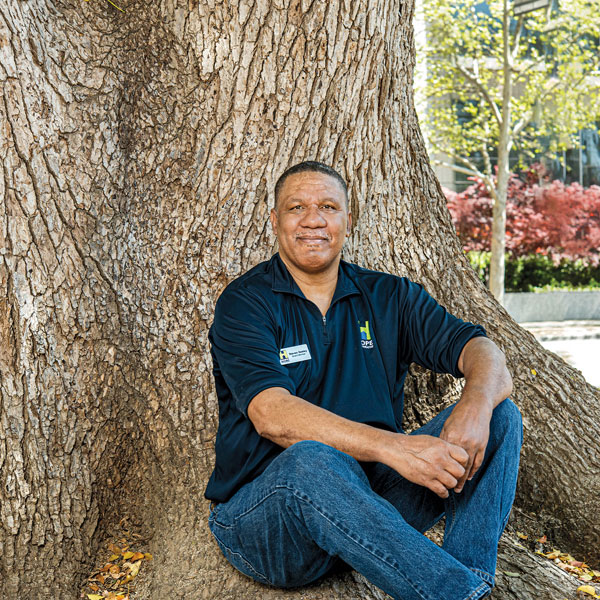
“I was quickly drawn to a lifestyle of drugs and alcohol for what I learned later was self-medication. So, in my own mind, I blamed it all on living the rough life, and not necessarily my mental health issues. My mother tried her best, suggesting mental health treatment over the years, but sadly it wasn’t enough to get me to do it.”
Steven attended college in Louisiana but never graduated. He fell in love and was married for three years, but his mental health problems became more than the marriage and fatherhood could handle. Work, relationships, parenting overwhelmed him. “I was such a handful, even for those who loved me,” he says.
The rough life pulled him back. He moved to Fresno, where his mother lived. The voices and delusions continued. He went from job to job, mostly in warehouses or making deliveries, and found his way to Sacramento.
In 2018, Steven, in the midst of a psychotic episode, broke into the Governor’s Mansion. First Lady Anne Gust Brown was home at the time, but didn’t encounter Seeley. He was arrested and placed in Sacramento County Jail.
“Gratefully, the law enforcement officer that arrested me was kind enough to return to the jail and to make a suggestion that I could benefit from mental health services,” Steven says. “And at that moment, and with God’s grace, I was receptive.”
Mental health court referred him to New Direction, a program of Hope Cooperative.
Steven tells me his journey was not a straight line. He considered giving up many times. Being homeless, he was disconnected from natural supports. His personal service coordinator became an important figure. “I bonded with my coordinator and when he left his position, I had a setback. But I never lost hope.”
Erin Johansen, CEO of Hope Cooperative, says, “Over the years, Steven has embraced the opportunities that were presented to him. He participated in therapy, groups, and worked closely with his medical team. He also utilized techniques he learned such as daily meditation for symptom management.”
“The combination of the medication, therapy and learning about my mental health issues were all part of a comprehensive treatment to alleviate my symptoms,” Steven says. “My brain is now, by all measures, back in balance.”
Today Steven is a member of the Hope Cooperative Board of Directors. “He brings his lived expertise to each board meeting to ensure we are meeting the needs of our clients,” Johansen says. “His willingness to share his story and his expertise is brave of him, and invaluable to continuous improvement as we care for our clients.”
Steven’s life came together as treatment progressed. “I’ve reconnected with my family and my adult children who are ages 16 and 27. I just took a vacation with my father and brother. That was great,” he says.
“I finally found a decent car and now have a nice apartment, and with my own dog to care for. This might not sound like much to some, but to me it means the world.”
While considered medically disabled because of his mental issues, Steven hopes to find a position to volunteer as a coach for youth sports leagues. He has lost more than 100 pounds, is physically stronger than ever and takes long daily walks.
“As my physical health improves so does my brain. It’s all connected.” he says.
His advice to others? “The most important thing is getting with the right psychiatrists and getting on the correct medication. That forms a foundation for recovery. Then therapy helps you set goals for your recovery. No one should be destroying their lives with drugs and alcohol. Sobriety is truly a gift. There are people ready to help. You just have to say yes.”
As a Hope Cooperative board member, Steven suggests people consider a donation to his organization on Sacramento’s Big Day of Giving May 4.
For information, visit hopecoop.org and bigdayofgiving.org.
Readers ask how they can contribute to Inside Sacramento. Here’s how. Visit insidesacramento.com and sign up for our weekly newsletter. Also consider a paid membership starting at $19.95 a year. Every little bit helps us serve our community.
Cecily Hastings can be reached at publisher@insidepublications.com. Follow us on Facebook and Instagram: @insidesacramento.





